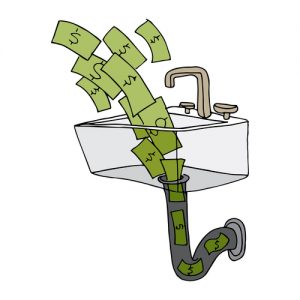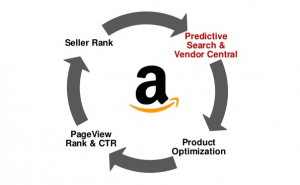Most businesses fail, and authors are no exception. In fact, we authors have a higher failure rate than most entrepreneurs, with self-published authors topping the list. Want to avoid defeat and join the growing list of six figure self-published authors?
Here Are Nine of The Most Common Reasons Authors Fail
- Not Ready For The Stage
I often think of the indie author business as being very much like an ice berg. While there’s a nice sized chunk of ice sitting on the surface of the ocean, what lies beneath is larger and more dangerous.
Most authors only look at the surface of the indie book business before they jump in. They soon find out they’re swimming for their lives. If they can’t adjust, these authors are quickly overwhelmed, and headed for Davy Jones’ locker.
- Lack of Planning
Authors who enter the business without a plan are fodder for failure. If you want to be successful, you must plan for success.
- Inability to Learn From Failure
When failure occurs (and it will), many new self-published authors either ignore the signs, or run in the opposite direction. I know of an author who started using Facebook ads to grow her mailing list. After spending a few hundred dollars and having no success, she declared “Facebook ads don’t work.” She took no responsibility for the lessons her failed Facebook ads were trying to teach her. All she saw was failure, and thus, she became one.
- Misuse of Capital
You need money to run any business, even an author business. Many indie authors write a book, spend for editing, book covers, and a few promo spots, and look on in horror when their new book fails. This is blind enthusiasm (and we’ve all been guilty of it). The blind/enthusiastic author spends little time on research, and therefore winds up spending their capital unwisely. They hope for success rather than plan for it.
- Ignoring Their Customers
Many self-published authors get bad reviews on their early work, and they ignore or dismiss the lessons their customers are trying to teach them. Instead, they say: “She didn’t understand it,” or worse, they confront the reviewer. Many bad reviews have some of good information in them—information that we can learn from and use to grow as writers. The review I received that I hated the most simply said “I want my money back.” I hated it because I couldn’t learn anything from it. If a product has flaws (any product) and the flaws are not fixed, all future products in that product line will fail. If your writing is flawed, and you don’t fix it, all future books will suffer. To be successful, writers need to incorporate the lessons their customers/reviewers are trying to teach them into their work.
- Ignoring The Market
Romance and Thriller are the most popular genres. This means, authors who write in these genres have a greater chance at success. It’s simple math. Where there is a larger audience, there is a greater chance for your books to get discovered. If you are writing in a little known genre such as poetry for skinny people (I just made that up), you will have to plan even better in order to have success. I’m not saying you can’t have success. But you must understand that your chances are slimmer when writing in a less popular genre. There’s a reason most six figure authors are writing in one of the more popular genres.
- Poor Financial Management
If you are spending money to advertise your books, you must chart your sales. Every night, at the end of the day, six figure author, Mark Dawson, pours himself a scotch, heads into his study, and pulls out his spread sheets. He takes the time to study his ads, what’s working and what isn’t; his sales spikes, why his book sales are spiking, and his promos—are they working? If the ads aren’t working he kills them, and starts over. Mark Dawson arms himself with information. Therefore he is a good money manager. If you are not taking the time to manage your money, your business may be in free fall, and you won’t know it until it’s time to turn out the lights.
- Lack of Focus
This should be farther up the list because this is the hidden reason most businesses fail. Writers become authors because of the glamour: writing in their studies, signing books for fans, traveling to speaking tours, money in the bank. Once they realize there’s work involved, many authors lose focus. The perfect recipe for failure.
- Lack of Profit
And the number one reason author’s stop publishing books and take down their shingle—they’re spending a lot more than they’re bringing in.
But There’s Hope
Failure can be avoided. Even if you’re on the road to failure you can turn your business around if you begin to take these four steps immediately.
- Create A Plan
Do not publish your next book until you have a plan, preferably a written plan. There’s a rule in show business, and that is: the less money you have to spend, the more you have to plan. You not only need a strategy as to how your book is going to earn money, but then you need a backup plan so if things go awry, you are prepared. If you want to prosper as an author you must prepare for success, and the first step in your preparation is having a plan. Will having a plan guarantee your success? Nope. But it will limit your chances at failure.
- Learn How To Build A Mailing List
Any successful online business will tell you, the money is in the list. If you want to buy a product from Amazon, the world’s largest retailer, the first thing you must do is sign up. Now you are on their mailing list. While there are many roads to success, there are two things the six figure authors I surveyed excelled at. Number one was every one of them spent time building a mailing list.
- Understand The Amazon Algorithm
The Amazon algorithm is complicated, no doubt. But if you know a few simple things about it, you can get the algorithm to work in your favor. Amazon is where six figure authors sell most of their books. Yet most indie authors fail to do any research on Amazon. They’d rather lust after a BookBub promo. BookBub is great at marketing your books, but no one can market your books better than Amazon. If you can get the algorithm to work in your favor, you will go from yo-yoing from promo to promo, to steady sales and regular income.
A better understanding of how the Amazon algorithm actually works can yield big marketing results. I know authors who are spending zero dollars on book marketing, and selling lots of books simply because they understand how to get the algorithm to favor their books. The reason I call my Short Reads training foolproof, is because it’s built around understanding and exploiting the Amazon algorithm.
- Study And Understand Your Genre
In most brick and mortar businesses this would go under R&D, research and development. Being an indie author is a business, and all authors should do a little R&D. Most successful companies spend a large chunk of their budget on research and development. Many spend 20%, and one company I researched spends a whopping 55% of their budget on R&D. It’s that important to any businesses’ success.
The good news is, an indie author doesn’t need to spend any money on R&D. The next time you’re about to write a book, spend some time studying your genre. What’s hot right now? Are there any new trends? Can your new book capitalize on these trends? Russell Brunson of Clickfunnels says: “if you want to get the full picture of what you’re competitors are doing, pull out your wallet.” Buy the products you’re trying to eclipse in the marketplace and study them. Every successful business studies their top competitors. You do this, and you will be on your way to six figures.
___
Take another step down the road to six figures. Download my free six figure author training guide How To Hit #1 On Amazon’s Bestseller List. Good stuff goes in, prosperity comes out.






